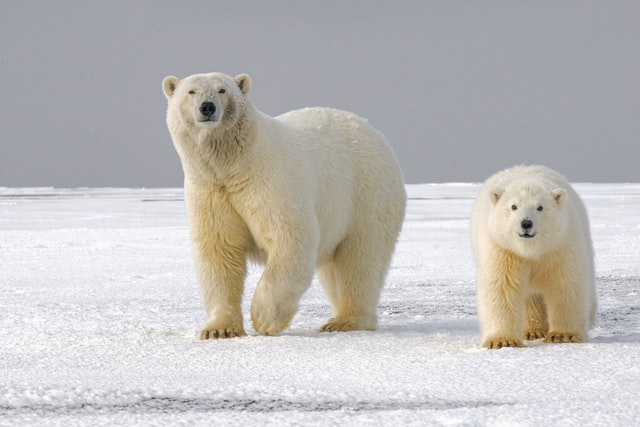
A Federal Court has rejected the Trump administration’s approval of Hilcorp’s Liberty Project, saying it violated Federal Law and ignored climate change.
Federal Court Rejects Trump’s Approval of Offshore Oil-drilling Project in Arctic
On Monday 7 December, The U.S. Court of Appeals for the 9th Circuit rejected the Trump administration’s approval of the first offshore oil-drilling development in federal Arctic waters. Hilcorp Alaska received approval in 2018 to build and operate the controversial Liberty project, an artificial drilling island and underwater pipeline that would risk oil spills in the sensitive Beaufort Sea and threaten polar bears and Arctic communities. The lawsuit was brought by the Center for Biological Diversity, Friends of the Earth, Greenpeace, Defenders of Wildlife and Pacific Environment, all represented by Earthjustice.
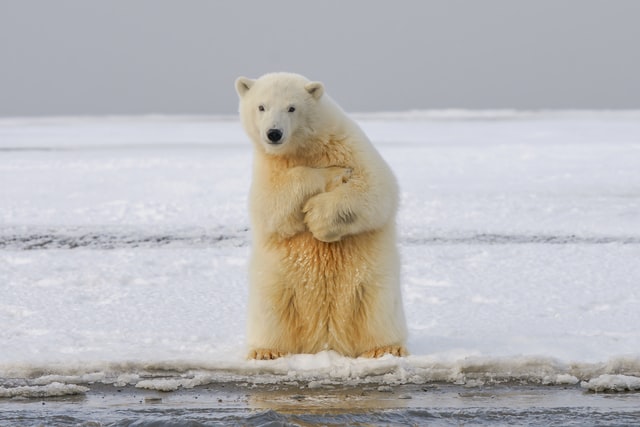
a huge victory for polar bears and our climate
“This is a huge victory for polar bears and our climate,” said Kristen Monsell, oceans legal director at the Center for Biological Diversity. “This project was a disaster waiting to happen that should never have been approved. I’m thrilled the court saw through the Trump administration’s attempt to push this project through without carefully studying its risks.”
The court ruled that the Trump administration had failed to properly consider the climate impacts of the project, as required by the National Environmental Policy Act. Specifically, the court rejected the administration’s improper use of economic modeling to reach the conclusion that this project would benefit the climate.
“I’m pleased that the court today rejected the administration’s inaccurate and misleading analysis of this project’s impact to the climate,” said Earthjustice attorney Jeremy Lieb. “In the face of a worsening climate crisis, the federal government should not be in the business of approving irresponsible offshore oil development in the Arctic. The world cannot afford to develop new oil prospects anywhere, but especially in the Arctic where warming is already taking such a significant toll.”
Source: The Center for Biological Diversity All photographs: Hans-Jurgen Mager via Unsplash
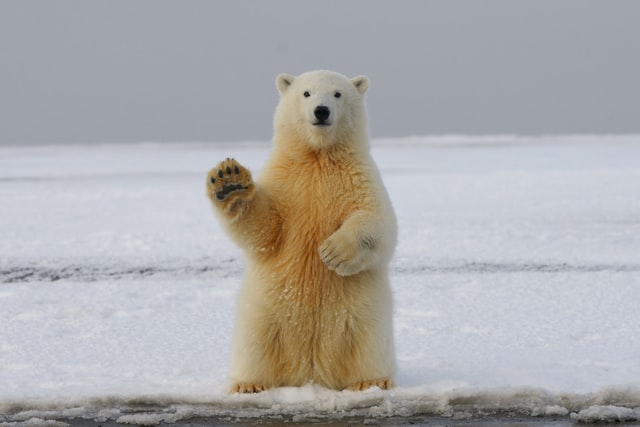
a victory for Alaska’s imperiled polar bears
The court also held that the Fish and Wildlife Service had violated the Endangered Species Act by failing to adequately analyse the effects of the project on polar bears —specifically, that the agency arbitrarily relied on uncertain mitigation measures in concluding the project would not adversely modify polar bear critical habitat and failed to properly consider the harm to them from noise disturbance.
“Today’s news is a victory for Alaska’s imperiled polar bears that are threatened by oil and gas development throughout virtually all of their terrestrial denning critical habitat ─ in the Arctic National Wildlife Refuge, National Petroleum Reserve-Alaska, and in the nearshore marine environment as well,” said Nicole Whittington-Evans, Alaska program director at Defenders of Wildlife. “Defenders will continue our fight against destructive oil and gas drilling and for the survival of polar bears in the Arctic.”
The Liberty project would involve construction and operation of a nine-acre artificial island, with a 24-acre footprint, in about 20 feet of water and a 5.6-mile pipeline under Arctic waters to send the oil into onshore pipelines.
Source: The Center for Biological Diversity All photographs: Hans-Jurgen Mager via Unsplash
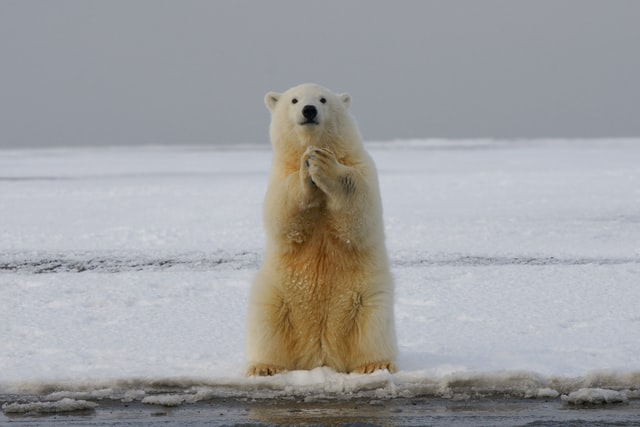
the court put the health of our children and our planet over oil company profits
“Today’s decision is a victory for the planet and its people. The ruling affirms that the U.S. must take steps to transition off of oil and gas if we are to have any hope of halting the climate crisis,” said Tim Donaghy, senior research specialist at Greenpeace. “If we are going to create a just, green, and peaceful future, it must start with rejecting destructive projects like Liberty. Climate action must happen now and the Biden administration needs to keep its promise to halt any new oil and gas leasing on federal lands and waters.”
The court vacated approval of the project and remanded the matter to the agency.
“We applaud the court’s decision to reject the Trump administration’s rush to drill for oil in Alaska’s pristine Arctic coastlines,” said Marcie Keever, legal director with Friends of the Earth. “Thankfully, the court put the health of our children and our planet over oil company profits. We will continue to fight against future oil and gas projects in the Arctic.”
The Center for Biological Diversity is a national, nonprofit conservation organisation with more than 1.7 million members and online activists dedicated to the protection of endangered species and wild places.
Earthjustice, the United States’ premier nonprofit environmental law organisation, wields the power of law and the strength of partnership to protect people’s health, to preserve magnificent places and wildlife, to advance clean energy, and to combat climate change. Because the earth needs a good lawyer.
Source: The Center for Biological Diversity All photographs: Hans-Jurgen Mager via Unsplash
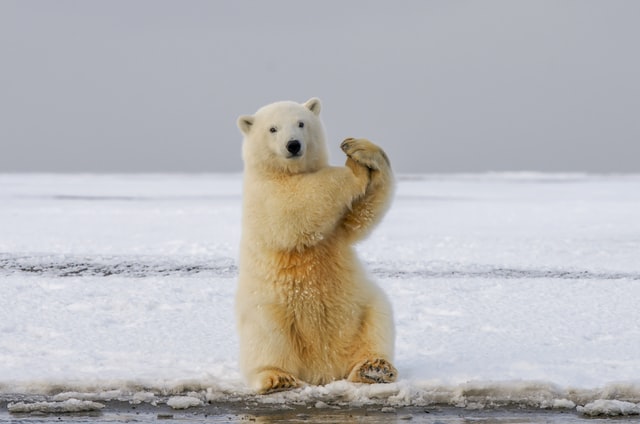
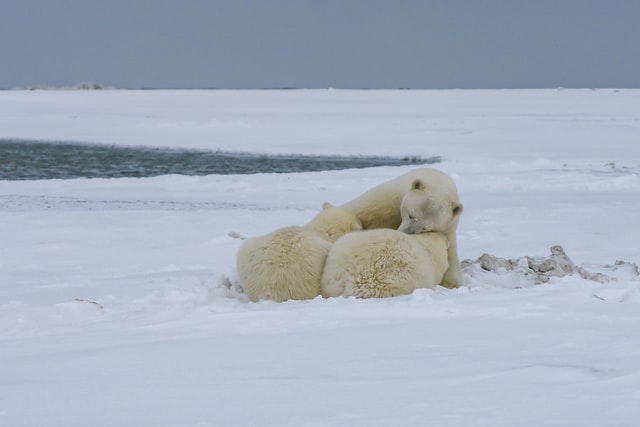
Polar bears still under threat by Trump administration
Despite the win for the region’s polar bears in terms of offshore drilling, the animals are still threatened by the Trump administration’s ongoing effort to open up the Arctic National Wildlife Refuge to oil and gas extraction — notwithstanding opposition from local Indigenous people as well as environmentalists.
The administration on Monday proposed an "incidental harassment authorization" that would allow energy companies to disrupt polar bears while looking for oil and gas deposits. According to Reuters:
‘The Fish and Wildlife Service said that no polar bears are expected to be injured or killed during seismic operations, some of which are scheduled to take place next month, and expects disturbances to impact only a few bears.
But several veteran Arctic scientists and environmentalists in Alaska have warned against seismic operations — which can involve blasting to produce sonic images of underground formations. They argue the testing will upset wildlife and that the heavy machinery and activity involved in the work will damage tundra and speed up the thaw of permafrost.’
As Monsell concluded: "The Trump administration seems determined to push polar bears further down the path to extinction before leaving office."
Source: EcoWatch All photographs: Hans-Jurgen Mager via Unsplash
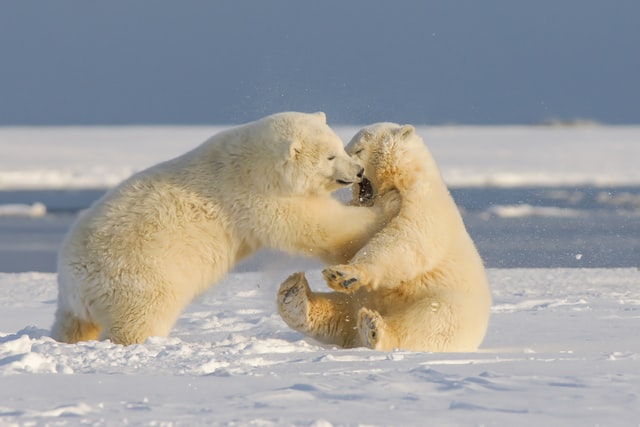

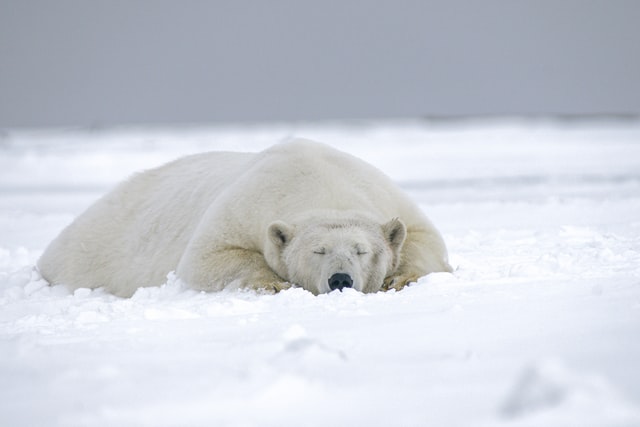
HOW TO HELP POLAR BEARS
Research shows that it's not too late to take action to save sea ice and polar bears by greatly reducing carbon emissions.<br /> Polar Bears International scientists have put together a list of which individual actions have the most impact. Look through these tips, find out what you're already doing—and then commit to doing more. Together, we can leverage our power as citizens and get involved as members of community groups and organisations to save the sea ice that polar bears depend on!